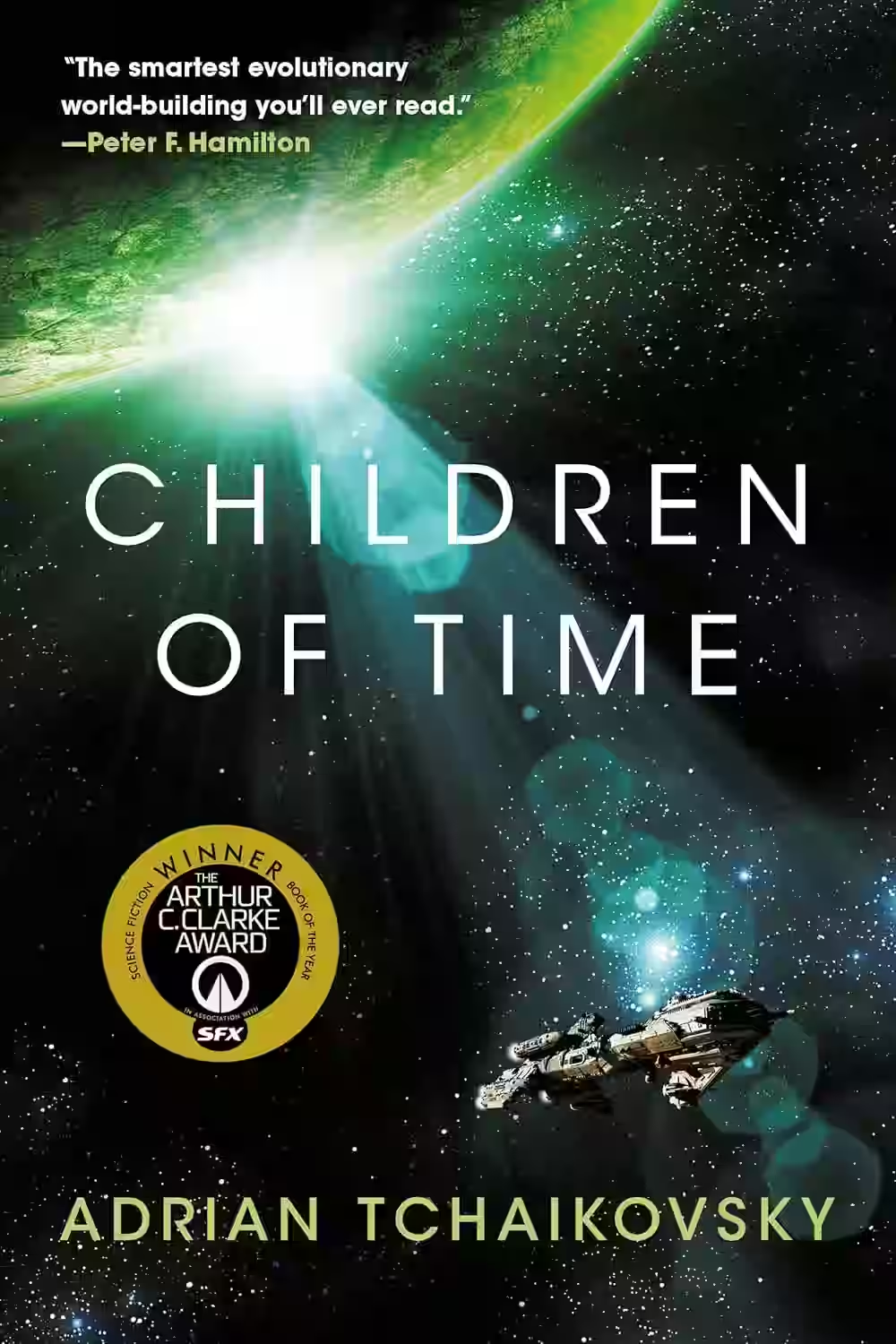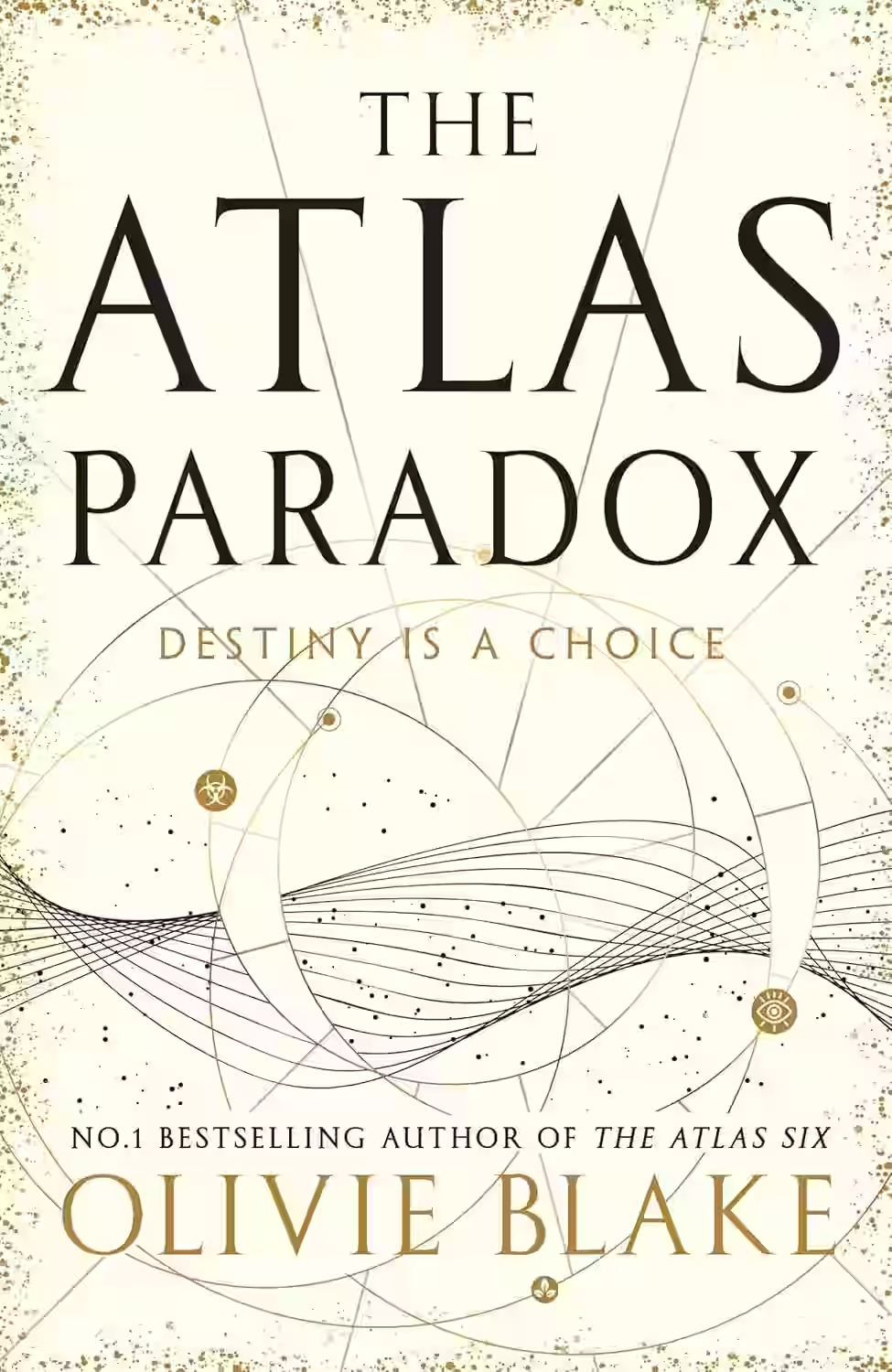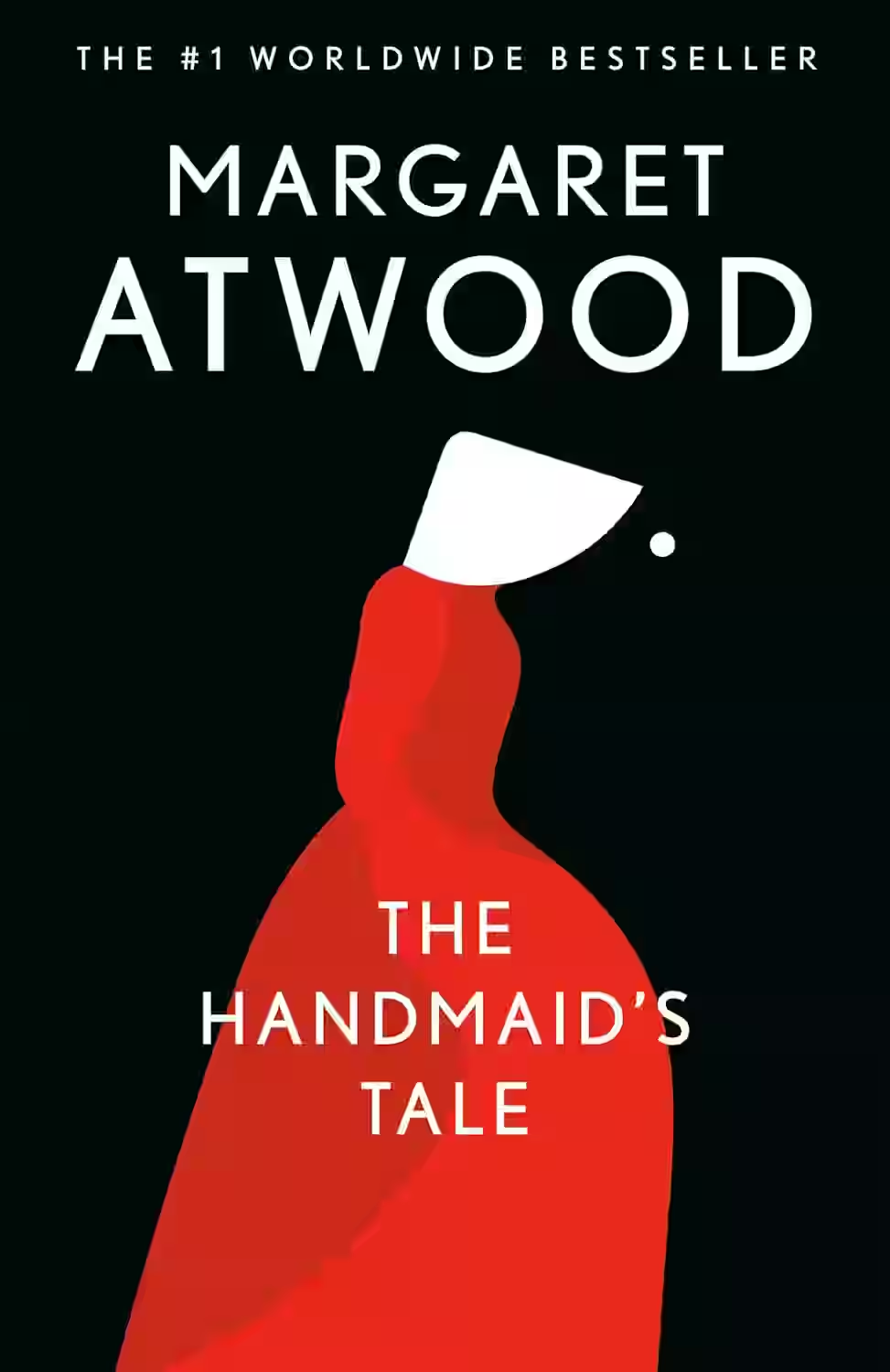
Adrian Tchaikovsky’s Children of Time is a sweeping sci-fi epic about the rise of a new civilization. As humanity flees a dying Earth, they discover a planet where uplifted spiders—descendants of a failed terraforming experiment—have evolved intelligence and complex societies. The novel alternates between the spiders’ development and a desperate human crew searching for a new home. It explores themes of evolution, empathy, and what it means to be human. With bold ideas and a richly imagined alien perspective, Children of Time is a thought-provoking, genre-bending masterpiece that challenges assumptions about intelligence, progress, and survival.
About Children of Time Series
This evolutionary sci-fi series begins with Children of Time, in which a terraforming experiment results in intelligent spiders instead of humans inheriting a planet. As a desperate human crew arrives, two species must navigate survival, coexistence, and communication. The sequel, Children of Ruin, expands the story to include uplifted octopuses. Blending biology, technology, and philosophy, Tchaikovsky explores what it means to be sentient—and what civilizations must do to share a future. It’s a deeply imaginative, thought-provoking saga of alien evolution and coexistence.
About Adrian Tchaikovsky
A British author known for his diverse and imaginative science fiction and fantasy novels, often featuring intricate world-building, unique alien species, and thought-provoking explorations of evolution and consciousness. His Arthur C. Clarke Award-winning novel, Children of Time, is a prime example of his ability to create compelling narratives with truly alien perspectives. Tchaikovsky's prolific and inventive storytelling has made him a significant figure in contemporary speculative fiction.
Other Books by Adrian Tchaikovsky

House of Open Wounds
Series: The Tyrant Philosophers (#2)
Behind the Palleseen crusade to eradicate magic, a field hospital confronts war's brutal reality. Yasnic, a former priest reprieved from execution, serves in an unorthodox medical unit led by the formidable 'Butcher'. Amidst gore and suffering caused by monsters, magic, and enemy soldiers, this motley crew of conscripts and healers works to save the seemingly unsavable. Their precarious existence is threatened by their illicit practices involving unapproved magic, necromancy, and Yasnic's forbidden Gods, risking disbandment, arrest, or worse at the hands of the zealous Palleseen.
Similar Books

The Atlas Paradox
by Olivie Blake
Series: The Atlas (#2)
In 'The Atlas Paradox,' Olivie Blake continues to captivate readers with her blend of intrigue and intellectual challenge. As a sequel to 'The Atlas Six,' this novel dives deeper into the mysterious world of the Alexandrian Society, where six gifted magicians vie for their place among an elite group. Each character, with their unique abilities and motivations, navigates moral dilemmas and shifting alliances, revealing the corrupt underpinnings of their world. Blake deftly weaves a narrative that combines complex character development with philosophical questions about power, knowledge, and ethics. The book's stimulating dialogue and suspenseful plot maintain a gripping pace, enticing readers to ponder the true cost of ambition. 'The Atlas Paradox' is a thought-provoking exploration of the human psyche, making it a must-read for aficionados of dark academia and speculative fiction.

Uglies
Series: Uglies (#1)
In Scott Westerfeld's dystopian novel 'Uglies', readers are transported to a future world where physical beauty is mandated by society. At the age of sixteen, citizens undergo compulsory cosmetic surgery to transform from 'Uglies' to 'Pretties'. The story follows Tally Youngblood, who is on the brink of her transformation, but her world is turned upside down when she meets a rebellious friend, Shay, who questions the societal norms. Themes of identity, conformity, and the nature of beauty are skillfully explored as Tally embarks on a journey that challenges her understanding of reality. Westerfeld's book offers sharp social commentary, action-packed sequences, and believable character development, making it an engaging read that probes thought-provoking issues pertinent to both adolescents and adults. 'Uglies' evokes reflection on the pressure for aesthetic perfection and the loss of individuality, resonating deeply with its readers and sparking conversations about modern beauty standards.

The Hitchhiker's Guide to the Galaxy
An international phenomenon and pop-culture classic, The Hitchhiker's Guide to the Galaxy has been a radio show, TV series, novel, stage play, comic book and film. Following the galactic (mis)adventures of Arthur Dent, Hitchhiker’s in its various incarnations has captured the imaginations of curious minds around the world. It's an ordinary Thursday lunchtime for Arthur Dent until his house gets demolished. The Earth follows shortly afterwards to make way for a new hyperspace express route, and his best friend has just announced that he's an alien. At this moment, they're hurtling through space with nothing but their towels and an innocuous-looking book inscribed, in large friendly letters, with the words: DON'T PANIC. The weekend has only just begun.

The Handmaid's Tale
Series: The Handmaid's Tale (#1)
In the Republic of Gilead, a theocratic regime has stripped women of their rights and forced them into distinct social classes. Through the eyes of Offred, a Handmaid assigned to bear children for elite couples, we see a chilling exploration of gender, power, and resistance in a society that feels disturbingly possible.